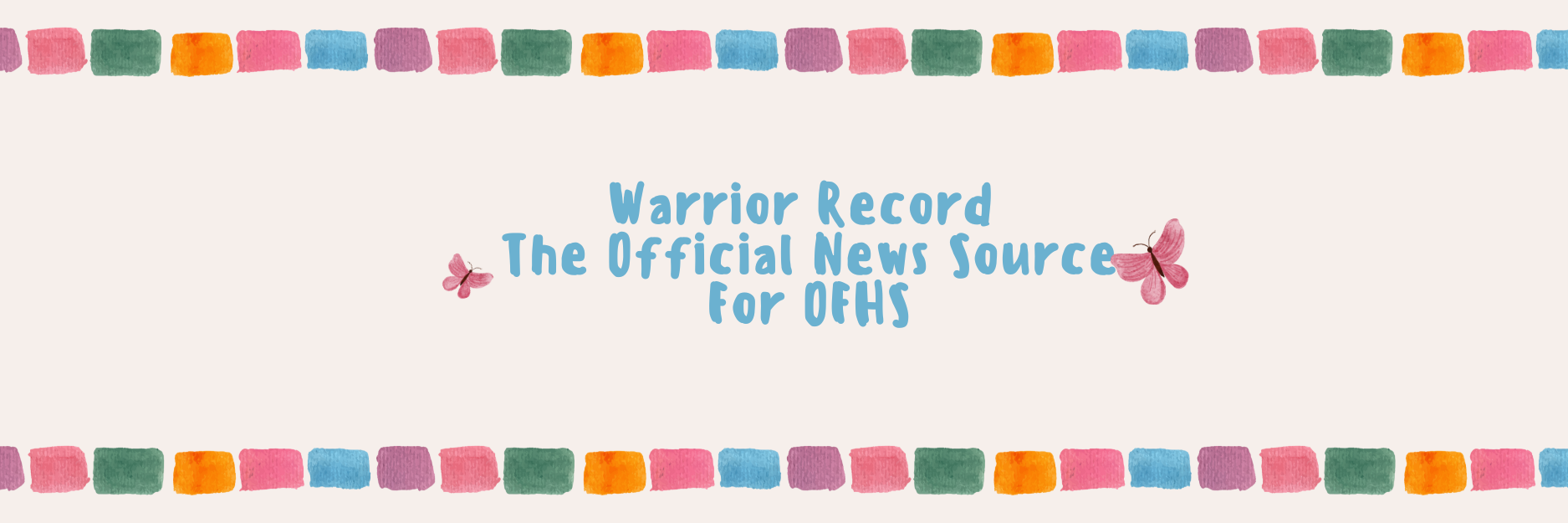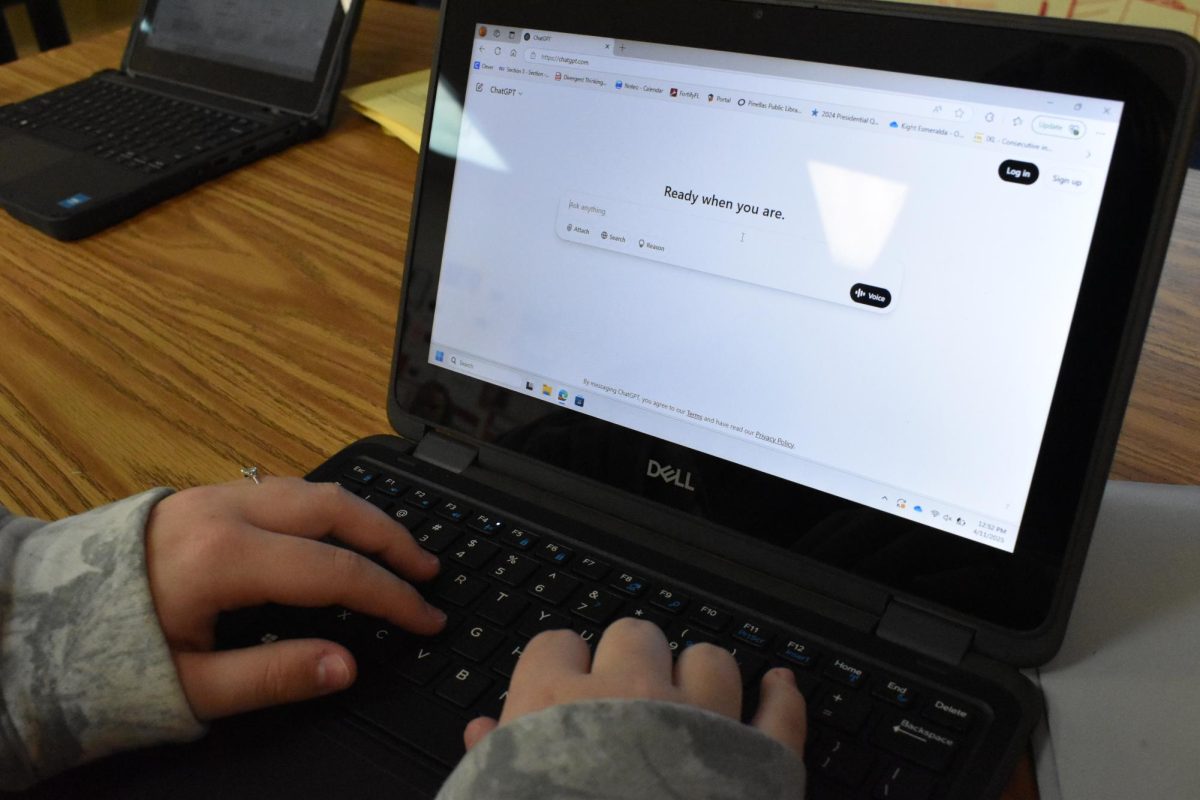Artificial intelligence is becoming increasingly more popular. It is utilized in many day-to-day tasks and has also become a tool students use for schoolwork. AI can be used to help generate ideas, study, explain questions, and check for grammar errors. However, AI is also relied on for homework answers, essay writing and book summaries. With the rise of AI, a looming question remains: Is AI helping students or is it just doing their work for them?
Warriors shared how they use AI in relation to their schoolwork:
One freshman at OFHS said, “Honestly, it kinda depends. But for the most part, I just use it to check my math answers. My math teacher doesn’t encourage cheating, obviously, but if you use AI in a way that you’re trying to understand the math work, then it is okay to use.”
An OFHS senior admitted, “I’ve used it once for English to give me the answers to a book I never read.”
Rudra Patel, 10th grade, said, “I use Artificial Intelligence to help me understand curriculum that I may not have fully comprehended during instructional time. A.I. has shaped the way I am able to learn in school and the way I study for my exams. It has proven to be a great tool and an asset, although it has its limitations and should never be used unethically or in any manner that opposes any applicable policy/policies.”
Additionally, Mr. Frump shares how he views AI:
-
How do you feel about the use of AI in classrooms?
“AI is a tool. Like any tool, it’s neither good nor bad on its own, but it can lead to both positive and negative outcomes depending on how it’s used. I believe historians will eventually view AI as the most significant invention since the steam engine. Just as the steam engine launched the Industrial Revolution, I think we’re now at the beginning of an information revolution that will reshape every part of society.We’re already seeing a growing gap between those who are incorporating AI into their work and those who are not. I encourage both teachers and students to embrace this shift. We don’t get to opt out of this. It’s already here, and it’s moving fast. At the same time, we need to talk about access. Not all students have equal exposure to AI tools. If we don’t work to close that gap, we risk widening existing educational inequalities. That’s part of why I’m passionate about students learning to use it and about teachers guiding them through it.” -
What are some ways you’ve used AI to help students succeed?
“I love the podcasts you can create with GoogleLM. I upload my class notes, vocabulary, and relevant YouTube links, and the AI generates a podcast in minutes. It takes very little effort on my end, and a bunch of students have told me they’ve been invaluable for test prep.I also use AI to plan lessons and keep things current. For example, I’ve used ChatGPT to find news stories that connect directly to what I’m teaching. One day after the TikTok ban was announced, my AP Government class did a practice Free Response Question created by AI on that exact topic. Since I lecture frequently, I use AI to add interesting facts and context that make class discussions more engaging. And when students are curious, I show them how to use AI to study more effectively. It’s not just about helping them succeed now. It’s also about preparing them for the world they’re going into. Most careers in the near future will involve some interaction with AI, so helping students become fluent in how to use it responsibly is part of the job.” -
Do you think AI helps or hurts students’ creativity or critical thinking skills?
“It can do both. If a student wants to use AI to complete an assignment without thinking, they absolutely can. But if they use it to better understand a concept or build on their own ideas, it can actually spark more creativity and deeper thinking.One reason I’m passionate about students using AI is that it gives them a private space to ask the questions they may be too shy or embarrassed to ask in class. Would anyone reading this feel comfortable asking, “Is Congress the same thing as the legislative branch?” out loud in front of their peers? Probably not, but I know students have questions like that. And if they don’t have a solid foundation, they can’t think critically. AI can help fill in those knowledge gaps and build confidence.I also try to model how to question and evaluate what AI gives you. It isn’t always accurate, and it isn’t always unbiased. Students need to know how to verify information, look at multiple sources, and decide whether something makes sense.” -
Final thoughts: “A lot of people think of AI as just another complicated tech trend they’ll have to learn, so they put off trying it. But compared to past tech, AI is surprisingly easy to use. If you haven’t tried it yet, grab an AI app and throw it a question. You’ll be surprised how easy it is. And once you start using it, you’ll realize it’s not just a trend. It’s a foundational shift that we all need to understand. I was able to convince my 80-year-old mother to use AI, and now she’s a daily user. If she can find value in it, anyone can. Everyone can use it and find a purpose for it.”
With all that being said, it’s evident that AI can be both a concern as well as a great tool if utilized properly. Students seem to use it for both clarification and assistance while teachers are aware of the implications AI has and also find creative ways to use it in their classroom.


